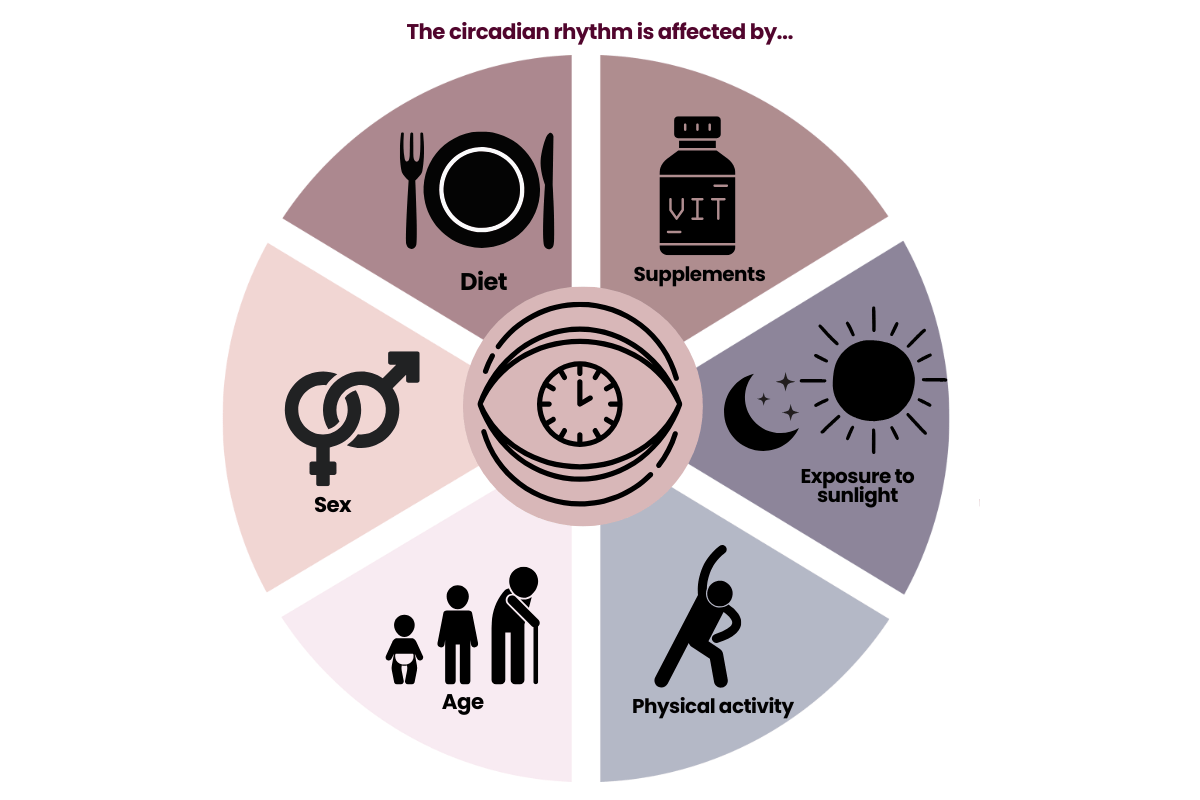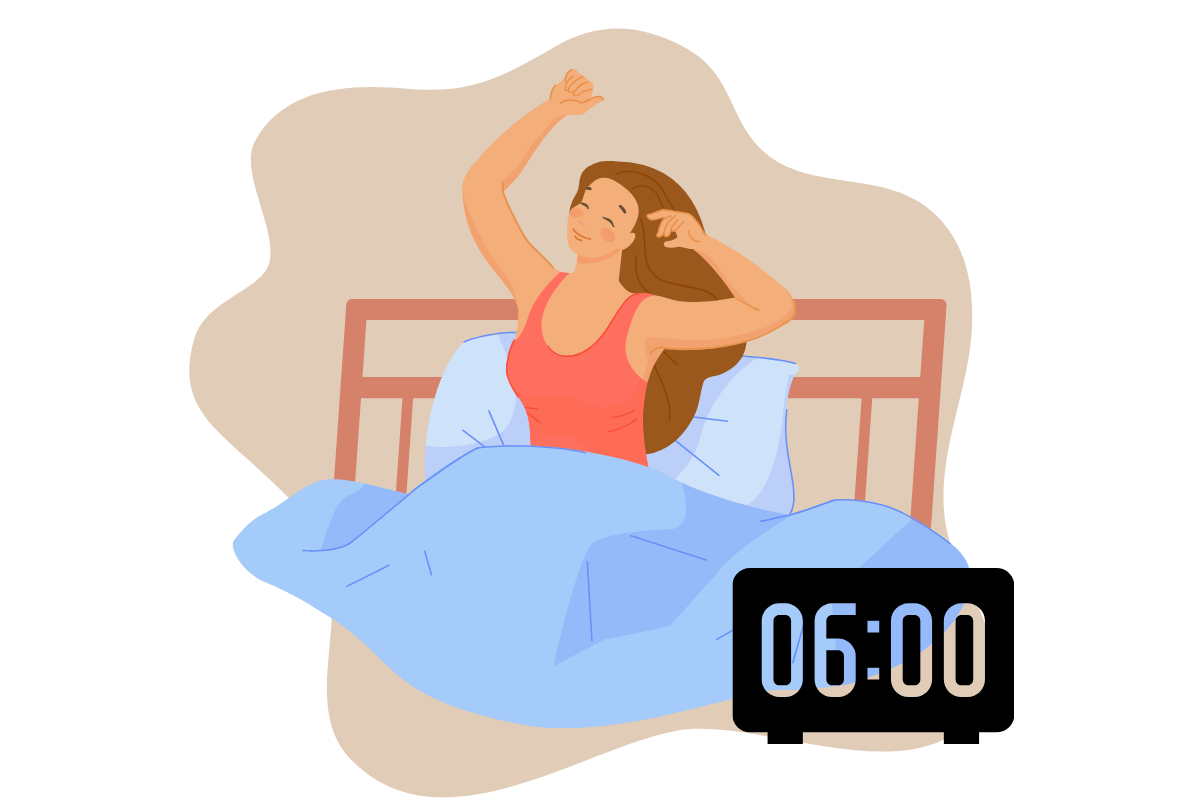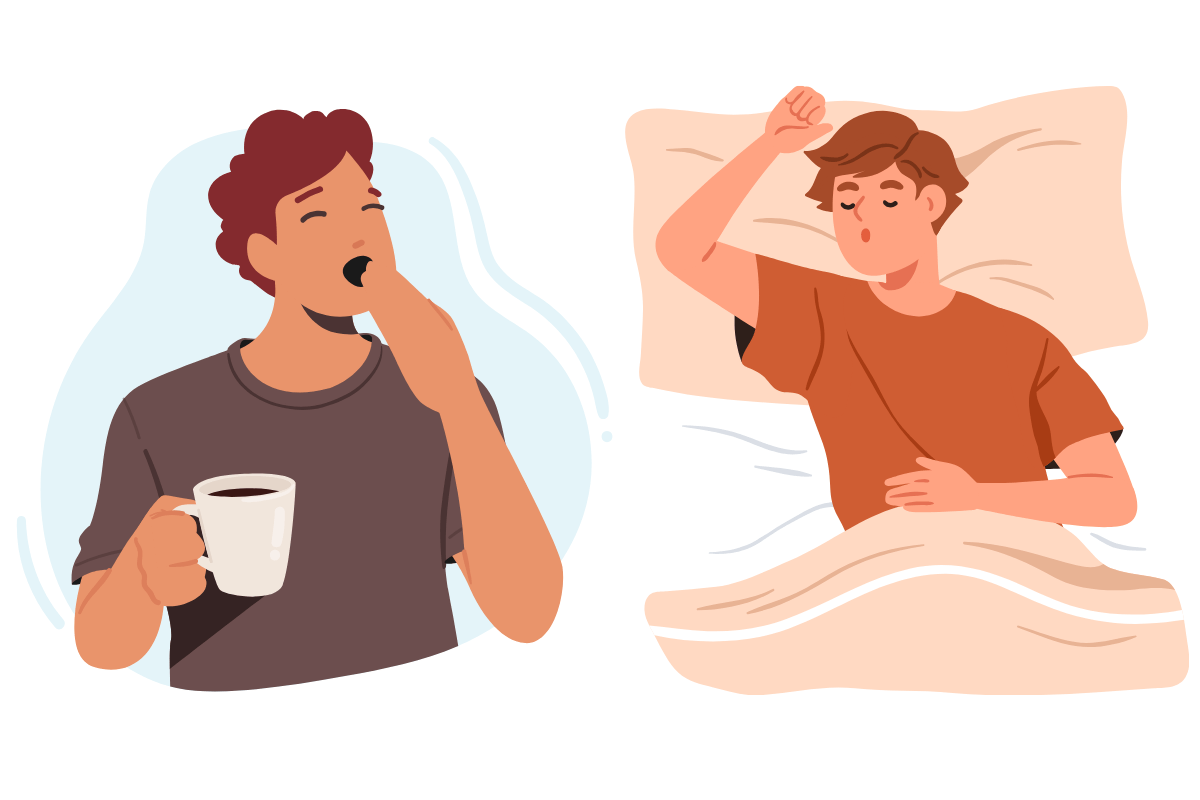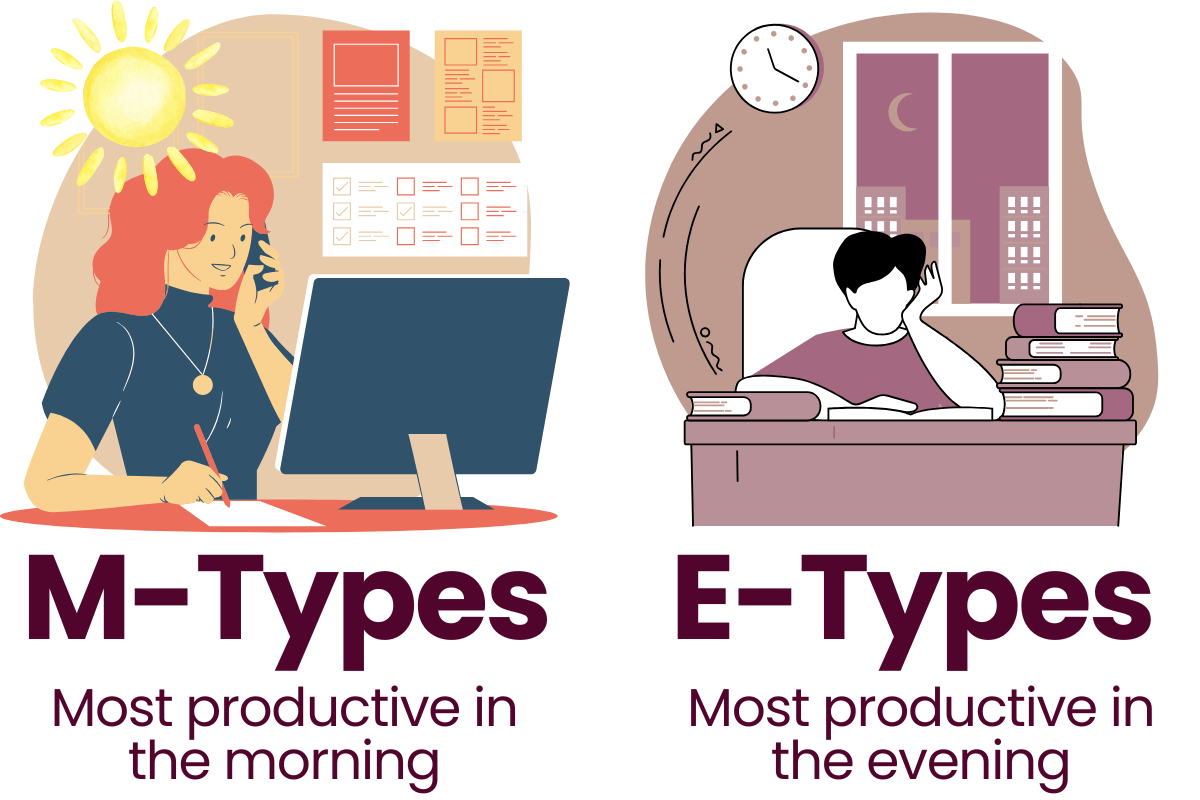Sleep is one of the most critical factors in maintaining good health. It’s important to know that we all have unique sleep patterns which can impact our daily routines, productivity, and well-being. One of the most fascinating concepts when it comes to sleep is something called "chronotype."

What is a Sleep Chronotype?
Sleep chronotype is the natural inclination for your body to sleep or stay awake at certain times. This is a characteristic that not only influences your sleep schedule but also affects your appetite, energy levels, and core body temperature.
Unlike what we often hear, not all of our bodies are wired to sleep at the same time. Our sleep chronotype differs in the amount of melatonin produced by the pineal gland in the brain. Melatonin acts as an internal controller that promotes sleep by widening the blood vessels, increasing blood flow, and resulting in a fall in core temperature.

Circadian Rhythm vs. Sleep Chronotype
Sleep chronotype and circadian rhythm are often used interchangeably. While they are related, they represent different concepts within sleep science and should be acknowledged as distinct terms.
Circadian Rhythm
Circadian rhythm is your body’s internal clock that runs on a 24-hour cycle. The rhythm is influenced by external cues like how much time you spend in the sun and helps to regulate your sleep-wake cycles, body temperature, metabolism, and even hormone release. Some other factors that affect your circadian rhythm are:
- Food intake
- Stress
- Physical activity
- Medications
- Mental health conditions
- Sleeping habits
These factors are potential reasons why you feel sleepy and awake at certain times throughout the day. Maintaining a regular sleep schedule and your overall health is important to avoid disrupting this rhythm and potential problems like insomnia, fatigue, and increased risk for certain health conditions.

Sleep Chronotype
Sleep chronotypes, on the other hand, are your personal tendencies for being awake or asleep at specific times of the day. This varies from person to person based on factors like genetics and age.
Studies have shown that genetic factors, such as variations in the PER3 circadian clock gene (a specific fragment of DNA), can influence a person's chronotype. Specifically, having a longer allele of this gene has been associated with a preference for waking up early, a characteristic of morningness. This suggests that chronotype is partly determined by genetic predispositions, meaning that certain individuals may have an inherent tendency to be morning people due to their genetic makeup.

The Three Types of Sleep Chronotypes
Understanding your chronotype is important to optimize both your physical and mental health. Each chronotype represents a different internal clock that affects when you feel most awake and productive during the day. By intentionally aligning your schedules with your natural inclination, you can enhance your performance and overall well-being by improving your sleep.
According to a 2021 study conducted at the University of Milan, sleep chronotypes can be classified into three types, although the authors acknowledge that individuals tend to lie on a continuum:
1. Morning Chronotype (M-types):
These are individuals who naturally wake up early, go to bed early, and experience a peak in energy in the early parts of the day. Their sleep patterns are also typically more consistent, leading to a more stable sleep quality.

2. Evening Chronotype (E-types):
Evening chronotypes prefer to go to bed late, wake up later, and feel most alert during the evening due to a delay in their melatonin production.
The 2021 study shows that during weekdays, evening types tend to experience lower sleep quality and quantity compared to morning chronotypes. This sleep deprivation is often caused by the misalignment between their circadian rhythm and the demands of their social schedules, leading to sleep debt. Disruptions in their sleep-wake cycle are linked to increased anxiety as their body struggles to adjust to outside factors like work/school schedule, light, or social obligations.

3. Intermediate Chronotype (N-types):
This group falls in between morning and evening types, showing a more balanced sleep pattern. Individuals with an intermediate chronotype do not have a clear preference for either early or late sleep times, making them more flexible when it comes to sleep and wake timing. Interestingly, about 60% of the adult population is classified as N-types, while the remaining 40% are divided between morning and evening chronotypes.
Aligning your schedule with your chronotype is key to optimizing your health and productivity. Whether you're a morning, evening, or neither type, synchronizing your activities with your natural sleep-wake cycle can help improve focus, reduce stress, and enhance overall well-being. For example, morning types should schedule demanding tasks like studying or meetings in the early part of the day, while evening types might thrive with later schedules or evening tasks.
Tools like Guava can help you track your sleep quality
By using Guava, you may be able to determine your chronotype. Then by paying attention to your chronotype and making small adjustments, you may be able to boost your productivity and improve sleep quality.

Development of Chronotype During Adolescence
As you become more aware of your chronotype, it’s important to realize that your sleep patterns naturally change over time. Understanding these changes can help you adapt your routine, so you don’t need to worry or feel overwhelmed. It’s a normal part of life, and learning to adjust can make a positive impact on your well-being.
A different study from 2022 shows that during adolescence, chronotype typically shifts toward E-type, often due to factors such as puberty and brain maturation, as well as external factors like school schedules and social activities. During this period, adolescents may find themselves staying up later and waking up later–a shift that can sometimes cause sleep difficulties if their schedules don’t align with their natural rhythms.
Additionally, the study also revealed that evening chronotype tends to be most prominent around the age of 19, after which there is a gradual shift back into morningness. This development is often nonlinear, meaning the exact timing and extent of the shift can vary from person to person, depending on genetics, lifestyle, and environmental factors. Understanding this shift can help ease any concerns, as these changes are typical and temporary.

Correlation Between Sleep Chronotype and Cancer Risk
A 2025 study has shown that irregular sleep patterns and misalignment between an individual’s chronotype and their social environment, such as work or school schedules, can disrupt the circadian rhythm and increase the risk of cancer. Circadian disruption impairs the body’s ability to regulate sleep, hormone production, and cellular processes.
This disruption can negatively impact the timing of melatonin release, which is not ideal as melatonin has been suggested to have anti-cancer properties. These properties may include inhibiting tumor growth, which occurs when abnormal cells begin to divide and grow uncontrollably.
Melatonin can also protect cells from oxidative damage, caused by unstable molecules attacking the body. When melatonin production is disrupted, particularly in those with evening chronotypes or irregular sleep-wake schedules, its protective effects are diminished, impairing the body's ability to repair DNA and regulate cellular growth. However, the role of melatonin is currently still being investigated, and more research is needed to confirm its effect on tumor growth.
While understanding your chronotype and aligning your daily schedule with it can improve your productivity and sleep quality, many individuals face the challenge of living in a world that doesn’t always cater to their natural rhythm. For those whose work-life routine doesn’t coordinate well with their chronotype, this can lead to issues like insomnia, social jet lag, and chronic fatigue. Some strategies you can try to help mitigate the effects of these disruptions are:
1. Melatonin Supplements
Melatonin helps to regulate the sleep-wake cycle by providing the body with a signal to sleep at the appropriate time. Although few studies have shown that overusage of melatonin could be an issue, it’s still important to be cautious when using supplements. It’s best to consult a healthcare professional for guidance on appropriate use.
2. Light Therapy
Light therapy involves sitting in front of a light box that mimics sunlight, which can help regulate your sleep-wake cycle by influencing melatonin production.
To help adjust your sleep and wake times earlier, your doctor might recommend using the light box in the morning after waking up. This can help reduce daytime sleepiness and is often used to treat conditions like delayed sleep-wake phase disorder or jet lag. If you need to shift your sleep schedule later, using the light box in the late afternoon or evening instead can help.
3. Sleep Hygiene
It’s important to maintain good sleep hygiene, which involves having a consistent bedtime routine. Try creating a sleep-friendly environment and limiting screen time before bed.

Conclusion
Understanding your chronotype is key to optimizing productivity and maintaining better sleep. While you may not be able to fully adjust your internal clock, making small changes to better align with your natural rhythm can improve your overall well-being. If your schedule doesn’t align with your chronotype, tools like melatonin, light therapy, and good sleep hygiene can help mitigate the effects.
Track Your Sleep and Energy Levels with Guava
Tracking your sleep, energy levels, and daily habits with tools like Guava can provide valuable insights into how your body responds to different schedules. You can then make informed decisions and manage your health more effectively.





